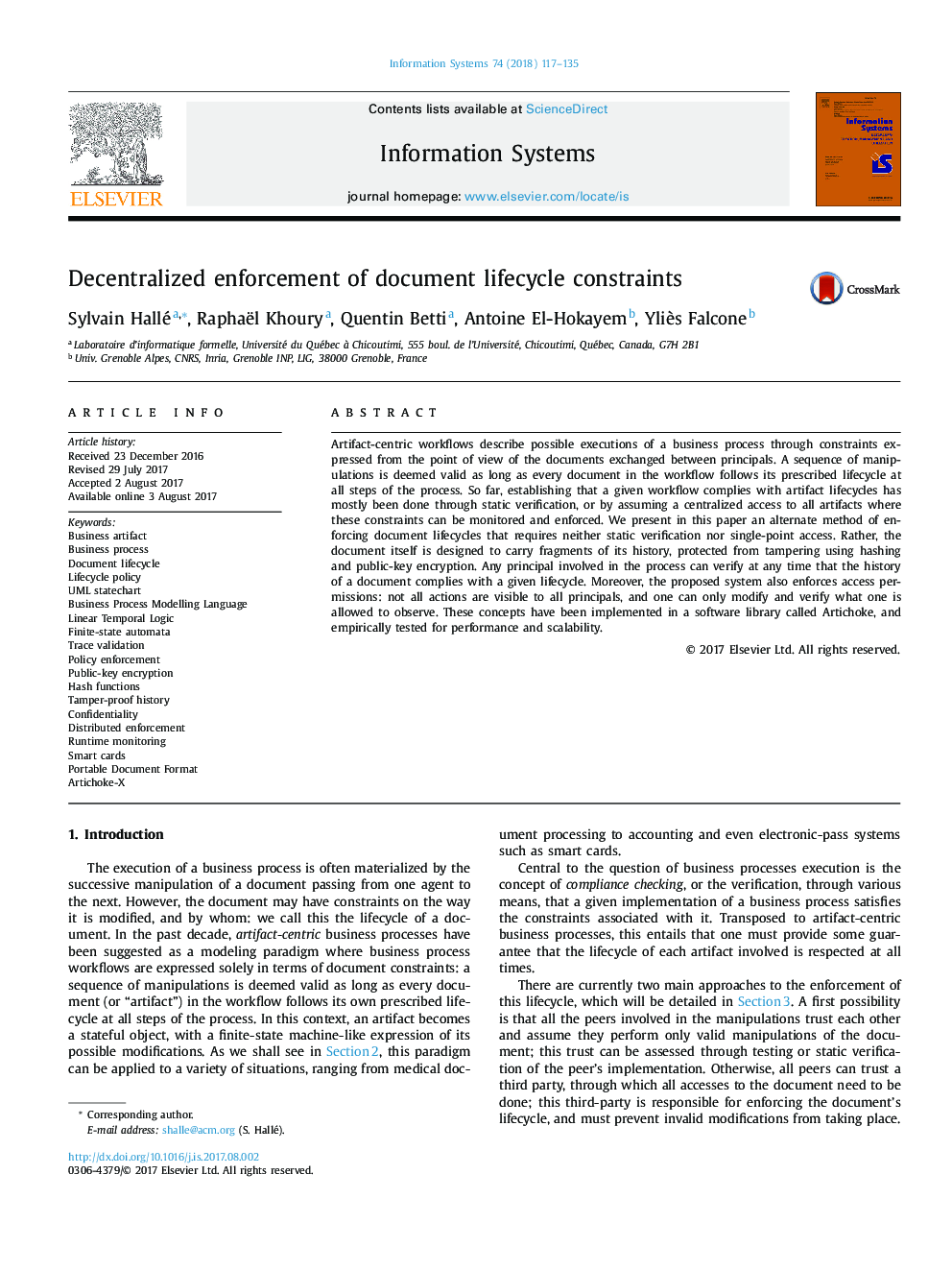| Article ID | Journal | Published Year | Pages | File Type |
|---|---|---|---|---|
| 6858608 | Information Systems | 2018 | 19 Pages |
Abstract
Artifact-centric workflows describe possible executions of a business process through constraints expressed from the point of view of the documents exchanged between principals. A sequence of manipulations is deemed valid as long as every document in the workflow follows its prescribed lifecycle at all steps of the process. So far, establishing that a given workflow complies with artifact lifecycles has mostly been done through static verification, or by assuming a centralized access to all artifacts where these constraints can be monitored and enforced. We present in this paper an alternate method of enforcing document lifecycles that requires neither static verification nor single-point access. Rather, the document itself is designed to carry fragments of its history, protected from tampering using hashing and public-key encryption. Any principal involved in the process can verify at any time that the history of a document complies with a given lifecycle. Moreover, the proposed system also enforces access permissions: not all actions are visible to all principals, and one can only modify and verify what one is allowed to observe. These concepts have been implemented in a software library called Artichoke, and empirically tested for performance and scalability.
Keywords
Related Topics
Physical Sciences and Engineering
Computer Science
Artificial Intelligence
Authors
Sylvain Hallé, Raphaël Khoury, Quentin Betti, Antoine El-Hokayem, Yliès Falcone,
